Limit the vino

The post 15 Heart Attack Prevention Tips Every Woman Must Know appeared first on Reader's Digest.
from Reader's Digest http://ift.tt/2nuESET

The post 15 Heart Attack Prevention Tips Every Woman Must Know appeared first on Reader's Digest.

Death Valley is an International Dark Sky Park, which means it restricts light pollution and can claim an exceptional number of starry nights. Death Valley also benefits from being the driest place in the country. “That means the chances of a cloud-free night are very good,” notes Abby Wines, park management assistant. “This is a great place to see the Milky Way, which most Americans have never seen.”
Wines also suggests taking in the full moon from the salt flats in Badwater Basin or Mesquite Flat Sand Dunes, an experience she calls “otherworldly.” Plan to visit during the next few months—in summer, nighttime temperatures often top 100 degrees.
Here are some more of America’s national parks that will leave you awestruck.
The post 8 Spectacular National Parks That Are Even More Incredible on Starry Nights appeared first on Reader's Digest.
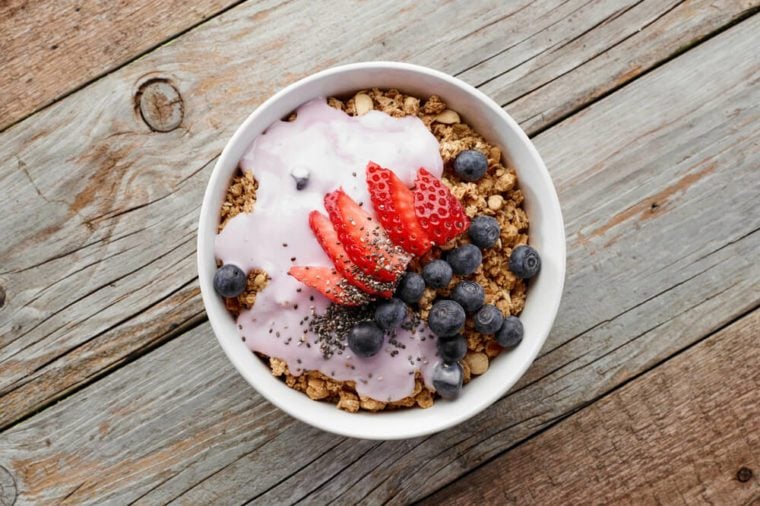
The acronym stands for Dietary Approaches to Stop Hypertension, and the plan was designed by the National Heart, Lung, and Blood Institute specifically to lower blood pressure and prevent hypertension. DASH emphasizes foods high in fiber, vitamins, and minerals, and low in saturated fat, salt, and sugar, and the concept has withstood scientific scrutiny for 20 years: It’s effective for lowering blood pressure and cholesterol.
On the DASH Diet, you’ll be eating plenty of fruits and vegetables, whole grains, beans, nuts, fish, poultry, and low-fat dairy, while taking it easy on fatty meats, sweets, and high-sodium processed foods.
A typical day on the DASH Diet:
Breakfast
Lunch
Snack
Dinner
Bottom line: The emphasis on eating whole foods without cutting out entire food groups makes the DASH Diet easier to stick to in the long run, and its proven effectiveness makes it a great heart-healthy plan.
Learn more about the best foods for lowering blood pressure.
The post The Best and Worst Diets for Heart Health appeared first on Reader's Digest.

Moisture can get trapped where shoes rub against each other, leaving you with squeaking shoes. Shaking a bit of baby powder or talcum powder under the inner sole will absorb moisture. If your pair doesn’t have removable soles, add the powder around the inside sole instead. Check out these 35 extraordinary uses for household staples.
The post 8 Genius Ways to Get Rid of Your Squeaking Shoes Once and For All appeared first on Reader's Digest.
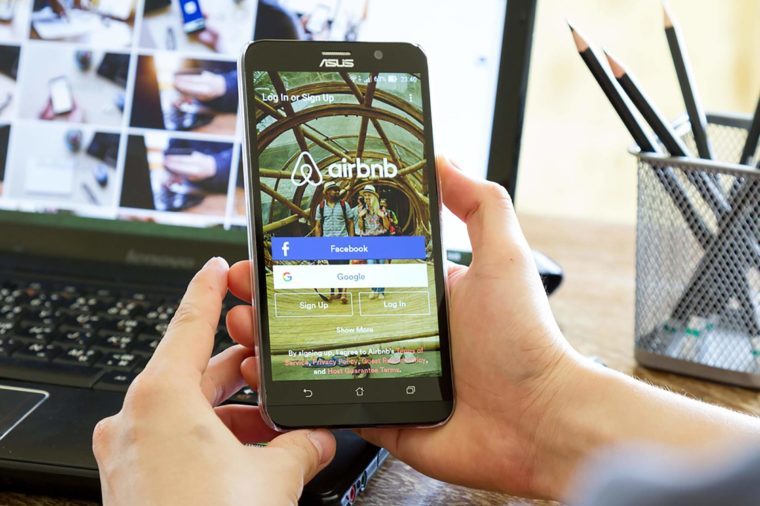
Tempted to list your pad to make some extra cash? Airbnb hosts make an average of $924 per month and nearly half of all hosts make more than $500 per month, according to Priceonomics. That’s more than any other providers in the so-called “gig economy” (made up of short term workers and service-providers, many of whom travel from place to place to pursue short term “gigs”), reports the website.
So, how can you turn your own house into a gig-economy goldmine? First and foremost, you need to make sure it’s legal in your city, and, if you rent, not a violation of your lease. “Laws about renting out an apartment for a short-term stay vary by city,” shares Fast Company. “A law in New York, for instance, makes it illegal to rent an apartment for less than 30 days if the owner is not around.” There are also tax and insurance laws, but not all of them work against you. In fact, the new tax law enacted in 2018 may entitle you to a hefty tax deduction for the expenses you incur in setting up your Airbnb business.
Once you know it’s legal, try a testing out a few nearby Airbnb venues as a guest. That way, you’ll get a flavor for what works, what doesn’t, and what you’ve got to offer, Fast Company suggests.
Once you’re convinced it’s right for you, here’s what you can do to maximize your Airbnb business:
Plus, don’t miss these other things to keep in mind before renting your home on Airbnb from people who have done it.
The post Here’s How Much You Could Earn Renting Out Your Home on Airbnb appeared first on Reader's Digest.

Clogged arteries often lead to this type of heart disease, which accounts for one in seven deaths in the U.S. each year, according to the American Heart Association. Plaque buildup in the main blood vessels of the heart stymie blood flow to the muscle. “This is the number one type of heart disease that we take care of,” says Sandhya Balaram, MD, associate professor of cardiovascular surgery at Icahn School of Medicine at Mount Sinai in New York City. Since arteries clog over time due to a variety of risk factors—high blood pressure, high cholesterol, diabetes, or a sedentary lifestyle—many patients don’t notice any symptoms until there’s significant blockage. Symptoms include shortness of breath, chest pain, or even heart attack. These are the silent signs of a heart attack.
The post 5 Types of Heart Disease and Their Warning Signs appeared first on Reader's Digest.

A recent study out of the University of Bonn suggests that a typical “Western diet” (a lot of red meat, sugar, and saturated fat and not much fiber—basically synonymous with fast food) can kick the immune system into overdrive, causing inflammation. The study, published in the journal, Cell, goes on to connect that inflammatory response to serious conditions like cardiovascular diseases (read: stroke or heart attack) and type 2 diabetes, which itself can lead to cardiovascular diseases, as reported by Science Daily.
Researchers, led by Eicke Latz, MD, PhD, director of the Institute for Innate Immunity of the University of Bonn in Germany, placed mice on a Western diet and observed that after only one month, the mice had an inflammatory response akin to that triggered by a serious bacterial infection. “Fast food thus causes the body to quickly recruit a huge and powerful army,” noted the University of Bonn’s press release, as that process notably increases the immune cells in the mice’s blood.
Even worse? The immune response isn’t reversible, the scientists discovered. When they fed the mice a healthier diet for another month, the acute inflammation subsided, but genetic testing revealed permanent changes to the immune system. This is because “the innate immune system has a form of memory,” Dr. Latz explains. “After an infection [or in the case of the mice, exposure to fast food], the body’s defenses remain in a kind of alarm state, so that they can respond more quickly to a new attack.”
Although the precise mechanism behind this process remains to be determined, Dr. Latz sees the research results as a warning, especially for parents of young kids, and suggests nutrition play a more prominent role in early childhood education. “Children have a choice of what they eat every day,” he says. “We should enable them to make conscious decisions regarding their dietary habits.”
Make sure you avoid these other seemingly innocent habits that could be damaging your immune system.
The post This Is What Fast Food Actually Does to Your Immune System appeared first on Reader's Digest.

The post 12 Stunning Black Sand Beaches You Never Knew Existed appeared first on Reader's Digest.
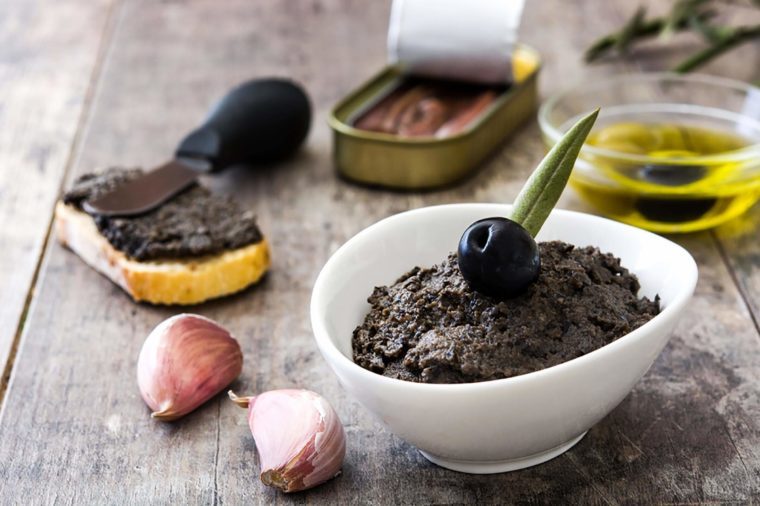
Olives are a staple of the heart-healthy Mediterranean diet, and one of the best ways to incorporate them into the foods that you already eat is to make a tapenade. (Think: wraps, pasta dishes, pizzas, etc.) “Olives are antioxidant-rich, helping to lower bad cholesterol and the risk of heart disease,” says Jim Froehlich, MD, Blue Cross Blue Shield of Michigan provider and University of Michigan cardiologist. “They also contain healthy monounsaturated fats, which reduce atherosclerosis and increase good cholesterol levels.”
Ingredients
Half-pound of Kalamata and green olives, pitted
1 anchovy fillet, rinsed
2 cloves of garlic, minced
2 tablespoons of capers
3 fresh basil leaves
2 tablespoons of freshly squeezed lemon juice
2 tablespoons of extra-virgin olive oil
Directions
Here are other ways to make your diet more Mediterranean.
The post 10 Heart Healthy Meals Cardiologists Cook for Themselves appeared first on Reader's Digest.

Cinque Terre, or “Five Lands,” is the name given to not one but five stunning villages perched along the Italian Riviera. Each village has its own character, but they all boast an incredible array of pastel-colored houses. Cinque Terre is situated inside a national park near Tuscany, so cars are a rare sight! Most of the 2.4 million tourists who visit per year arrive by boat. Once they get there, they mainly walk, taking in the sights of the Riviera along the seven-and-a-half-mile hiking trail. Check out some of America’s most picturesque hiking spots.
The post 11 Gorgeous Photos of the Most Colorful Towns in the World appeared first on Reader's Digest.
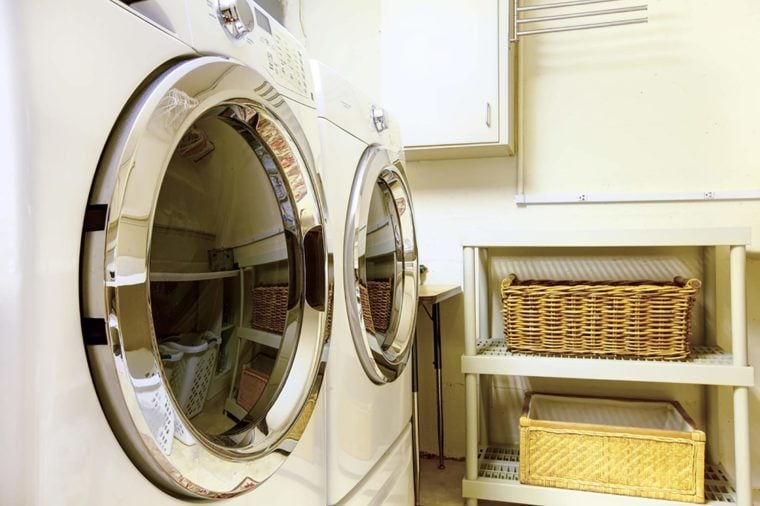
The post 14 Things That Should Never, Ever End Up in Your Dryer appeared first on Reader's Digest.
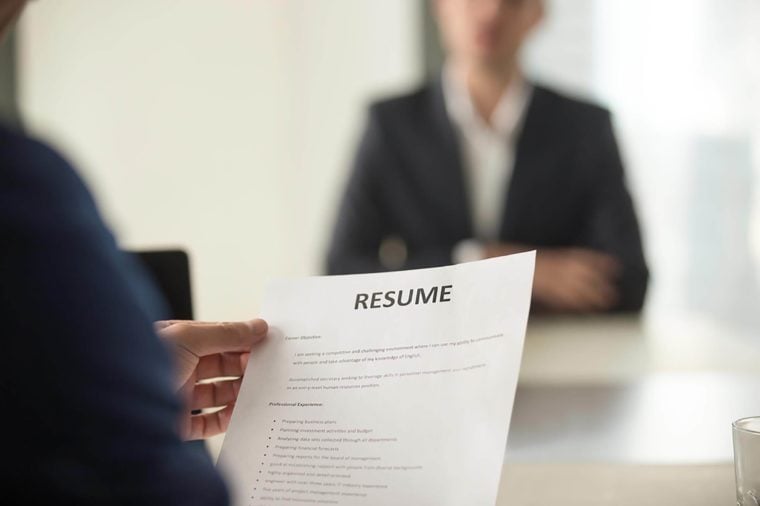
“Once you’re unemployed more than six months, you’re considered pretty much unemployable. We assume that other people have already passed you over, so we don’t want anything to do with you.” –Cynthia Shapiro, former human resources executive and author of Corporate Confidential: 50 Secrets Your Company Doesn’t Want You to Know (Learn the best way to explain a résumé gap.)
The post 14 Things HR Won’t Tell You About Your Résumé appeared first on Reader's Digest.
 The how and why of Scandinavian food
The how and why of Scandinavian foodThe Scandi diet is big on reducing starchy carbs and replacing those calories with heaping servings of healthy proteins, such as locally-sourced, cold-water fish, and organic vegetables. Just as importantly, Scandinavians believe it’s not just what you eat that counts, it’s how you prepare it that matters too. “Cooking is a major part of the Scandinavian culture and something kids are taught to do from an early age. Combined with almost-universal access to fresh produce and fish, Scandinavians generally eat healthier than most Americans,” says Christel Oerum, a diabetes advocate and Danish-expat living in Los Angeles.
Scandinavians also believe that junk food is, well, junk. “Out of all the countries, the U.S. and U.K. take the top spots for consuming the most junk food, including pizza, and deep-fried foods. Swedes consume the least, an easy-to-nab habit, which contributes greatly to their health,” adds Frida Harju Westman, in-house nutritionist for Scandinavian health app, Lifesum. Find out the surprising foods that Swedes, and healthy people from countries around the world, eat for breakfast.
The next time you pass up the sauna in your gym, you just might want to rethink your quick post-workout getaway. Scandinavians are more than obsessed with saunas—in fact, there are over 2.2 million in Finland alone! This feel-good obsession is steeped in science as well as sweat—a study done by scientists at the University of Eastern Finland found that a 30-minute sauna reduced blood pressure and increased heart rates to levels comparable with moderate exercise. Saunas also help you sweat out toxins and alleviate stress.
Scandinavian people take a moderate approach to all things in life—from food to work. This way of living is called lagom, and is a large part of Nordic philosophy. It may also be a reason why Scandinavian countries are as healthy as they are, says Westman. “Lagom is an idea of ‘just the right amount,’ meaning, you don’t restrict anything, but also don’t have anything in excess. Lagom applies to all areas of life,” she explains. Learn all about the benefits of lagom.

Single digit temperatures (or lower) are the norm in much of Scandinavia during winter. Even so, almost all Scandinavian cities are designed for easy biking and walking. “In Copenhagen, 50 percent of the locals commute to work by bike daily and another 25 percent walk or use a combination of public transportation and walking,” says Oerum. And it doesn’t matter what the weather is like, according to Denmark’s official website. Even in the snow, sleet, or freezing cold, you’ll see more people biking to their destinations than you will see taking public transportation. Find out the most bike-friendly cities in every single U.S. state.
Content continues below ad
The parental-leave career juggle is a stressful one for most American parents. The anxiety of leaving a baby too soon, plus the stress of a job, can create health-busting emotional turmoil. Can you imagine living in a country where the government puts families first, mandating up to 16 months of paid family leave after a baby’s birth, or adoption? That’s what many Scandinavian countries make available to every citizen who wants it. Miami native Aparna Majmudar, who has lived and worked in Denmark with her Danish husband and three small children for eight years, shares, “I credit so much of Scandinavians good health and social vibrancy to the way the state-run health system approaches pregnancy, birth, and the formative first years. I also think the Danish work culture and its flexible frames contribute greatly to keeping families, and society, whole,” she says. Here’s what not to say to a working mom.
Bitter-cold temperatures, and long, dark days with little-to-no sunlight, can create a perfect storm for binge drinking, depression, and alcoholism. However, Scandinavia’s healthiest folks apply the lagom philosophy to alcohol intake. According to Westman, lifesum’s proprietary data indicates that Norwegians drink the least amount of alcohol than people in many other countries, including the U.S., and U.K., and WEST reports that rates of alcohol use by young adults and teenagers in Sweden and Finland are lower than they have been in decades. These youthful smarties focus on socializing sans booze and the pursuit of physical fitness instead.
Drinking less is good for physical as well as mental health. “Alcohol can be very calorific as they often contain a lot of sugar, which is counterproductive to being healthy. Additionally, drinking alcohol reduces liver function by creating fat around that organ, as well as increasing blood glucose levels,” says Westman. Here’s how the countries with the shortest days beat seasonal depression.

In Scandinavia, you don’t have to work for a cool startup to get an in-house gym and other health-boosting benefits. “Almost every company in Scandinavia has a health policy, and many invest in healthy food and exercise for their employees. It’s very common for companies to have their own social sports groups, such as biking, running, and soccer. Others pay for employees’ gym memberships,” says Oerum. Many businesses even have an on-site sauna for employees to enjoy. All of this helps to boost morale, increasing feelings of self-worth, and dedication, as well as health.
Whether at work, home, or play, Scandinavians understand the power of shifting gears to cleanse the mind, enjoy conversation, and restore focus. They often do this with family, friends, or co-workers over a cup of coffee. This ritual is called fika, and it is popular with all age groups, including children, who might opt for hot chocolate instead of a cup of joe. Fika is more about connecting with others than it is about getting a caffeine jolt.
The post These 10 Secrets of Scandinavians Are Why They’re So Healthy appeared first on Reader's Digest.
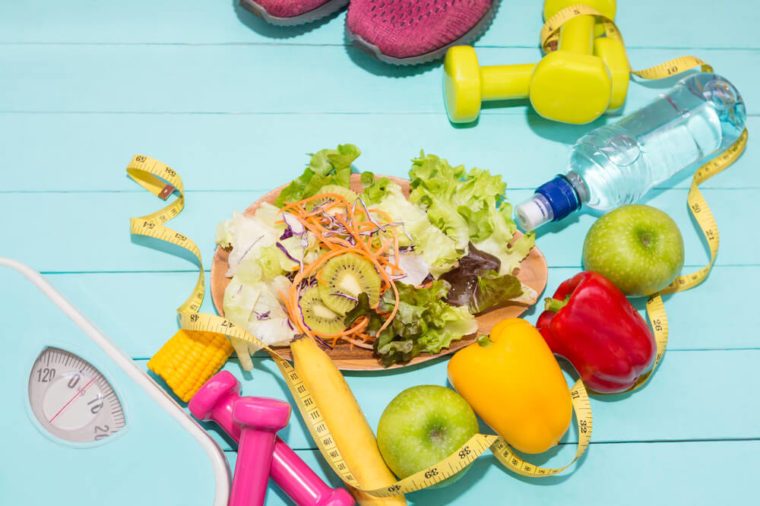
Staying physically active is essential to health—The Mayo Clinic recommends 150 minutes of fitness a week, but what you consume is equally, if not more, important. After all, if you finish every run with two cheeseburgers, fries, and a shake, chances are slim that you’ll drop a dress size in time for your cousin’s wedding. The issue many dieters face is pinpointing their specific areas of weakness in their eating habits. To the rescue is Whole30, a clean eating program that cuts out the common culprits—dairy, gluten, soy, legumes, alcohol, and sugar—for 30 days. It’s a bit tricky to follow since so many foods have hidden ingredients, but once you’ve completed the 30 days, you gradually add back these foods to see how your body responds. Armed with this information, you can shape your meal plans to steer clear of dairy, if it’s making you bloat, gluten if it’s not sitting well with your tummy, or another food that’s causing you to hold onto weight.
Whole30 says no-no to dairy, so here are some alternatives.
Believe it or not, a little om can actually be a game-changer in weight loss. A study conducted at Carnegie Mellon University found that 25 days of meditation three days in a row can make a dramatic impact on your stress levels. And since stress causes you to hold onto weight thanks to the cortisol hormones that gets overworked when you’re overscheduled, the more in control you are of your habitual mental thoughts, the easier it will be to put your best foot forward with exercise and weight loss. Countless apps—like Headspace and Calm—offer challenges to keep you inspired to incorporate meditation into your routine. Even if you can’t squeeze in 25 minutes a day, consider implementing a meditation practice before bedtime to encourage better sleep, which hey, also contributes to a lower number on the scale!
Here are some ways to sneak some meditation into your life.
If you’re a new parent or a super-busy professional, or if logging sessions at the gym isn’t your style, an at-home fitness challenge might be your best bet. When you search Pinterest, you’ll find plenty of targeted challenges that will help you plank longer, go deeper into your squats, build some killer abs, or improve the lift of your bum in your go-to denim. Many of these challenges are created by trainers and won’t take more than 10 minutes out of your day. Even better, it could inspire you to try other methods of fitness when your calendar clears. This resistance band workout will work your whole body.
Content continues below ad
Though technically not a challenge per se, Aaptiv is a smart choice for a seasoned exercise enthusiast who already knows how to burpee, mountain climb, high knee and jab, cross, hook, and uppercut. With a variety of workouts and fitness levels, this audio-only instruction is a smart way to stay focused and perfect your form. Consider encouraging a few pals to sign up for a membership so you can work out together from your respective homes, or at the very least, hold one another accountable to at least squeeze in a half hour on the daily.
Can you pass these everyday fitness tests?
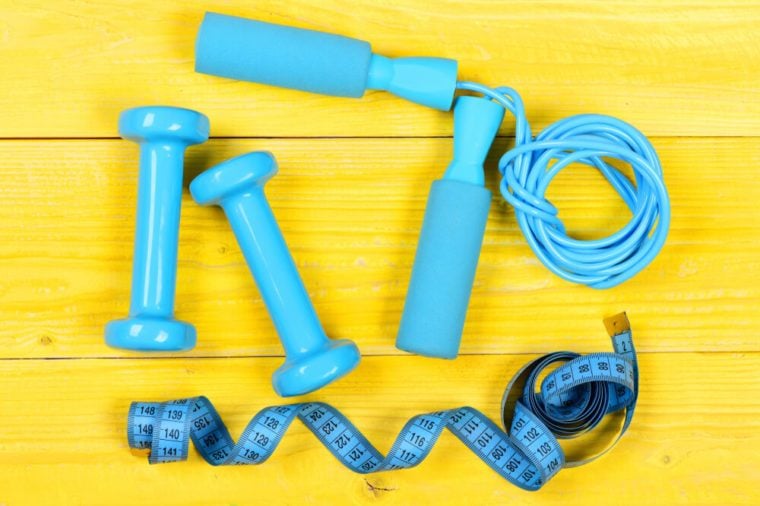
If 30 days feels a tad overwhelming, why not adopt a leap-year mentality and go for 28 instead? FitGirls Guide, which was also made popular thanks to Instagram, is a 28-Day Jumpstart Program with all the tools you need to transform your lifestyle. In addition to a full workout plan that requires zero equipment, FitGirls also gives a meal plan that can be tailored to any diet, regardless of whether you’re gluten-free, vegan, or vegetarian. If your pals aren’t along for the adventure, don’t worry: There’s a huge community behind FitGirls, so you’ll always have some online support if you need a push. With your real-life friends, try these fun social activities that double as workouts.
After the countless holiday parties and New Year’s celebrations, your liver is basically begging for a break. In addition to causing some major headaches and dehydration, excessive drinking can pack on the pounds. Since most alcohol is high in sugar and tough for your body to break down, boozing it up on the regular could be adding more to your waistline. One 30-day challenge that’s to-the-point is dry January, in where you forgo any vino, beer, or cocktails until February. While it might be a tad awkward in social settings, challenge yourself to grab a soda water with lime and be the designated driver—and ahem, Instagram photo taker—for the evening. If you’re doing the bartending, try whipping up these delicious mocktails.
Especially if you work from home, wrangle children 24/7, or travel for work, online workouts make squeezing in exercise less stressful. If you get bored searching through countless YouTube videos to find one that’s actually effective, consider a Daily Burn membership. You’ll get specialized workout plans based on your goals, the opportunity to buy fitness equipment, including a heart-rate monitor to ensure that you’re putting in maximum effort and other features, as well as a live workout every morning. Make it your goal to complete a full month of these, kicking your mindset—and your bum!—into healthy gear. Check out the secrets of women who work out every day.
The post 9 Weight Loss Challenges That Are Totally Doable appeared first on Reader's Digest.
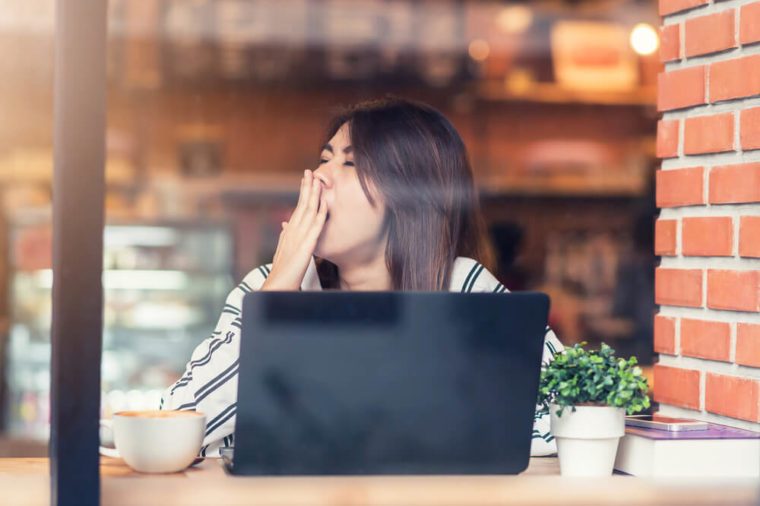
The post 10 Habits You Don’t Realize Could Be Costing You That Promotion appeared first on Reader's Digest.

We’ve all been sidelined at some point by a tension headache, but only about 12 percent of Americans get migraines, says the National Institutes of Health. (Check out 16 signs that your headache could be something much worse.) Thought to be at least partially genetic, migraines are an episodic headache that can involve severe, throbbing pain. “When we think of migraine, it’s the level of disability that really sets it apart from other headaches,” says Susan Hutchinson, MD, a southern California headache specialist and medical advisor at MigraineX. “And it’s much more than just the headache. What comes with it is an extreme sensitivity to the environment and a resulting inability to function.”
The post The Sneaky Warning Signs a Migraine Is Coming—and How to Stop Them appeared first on Reader's Digest.
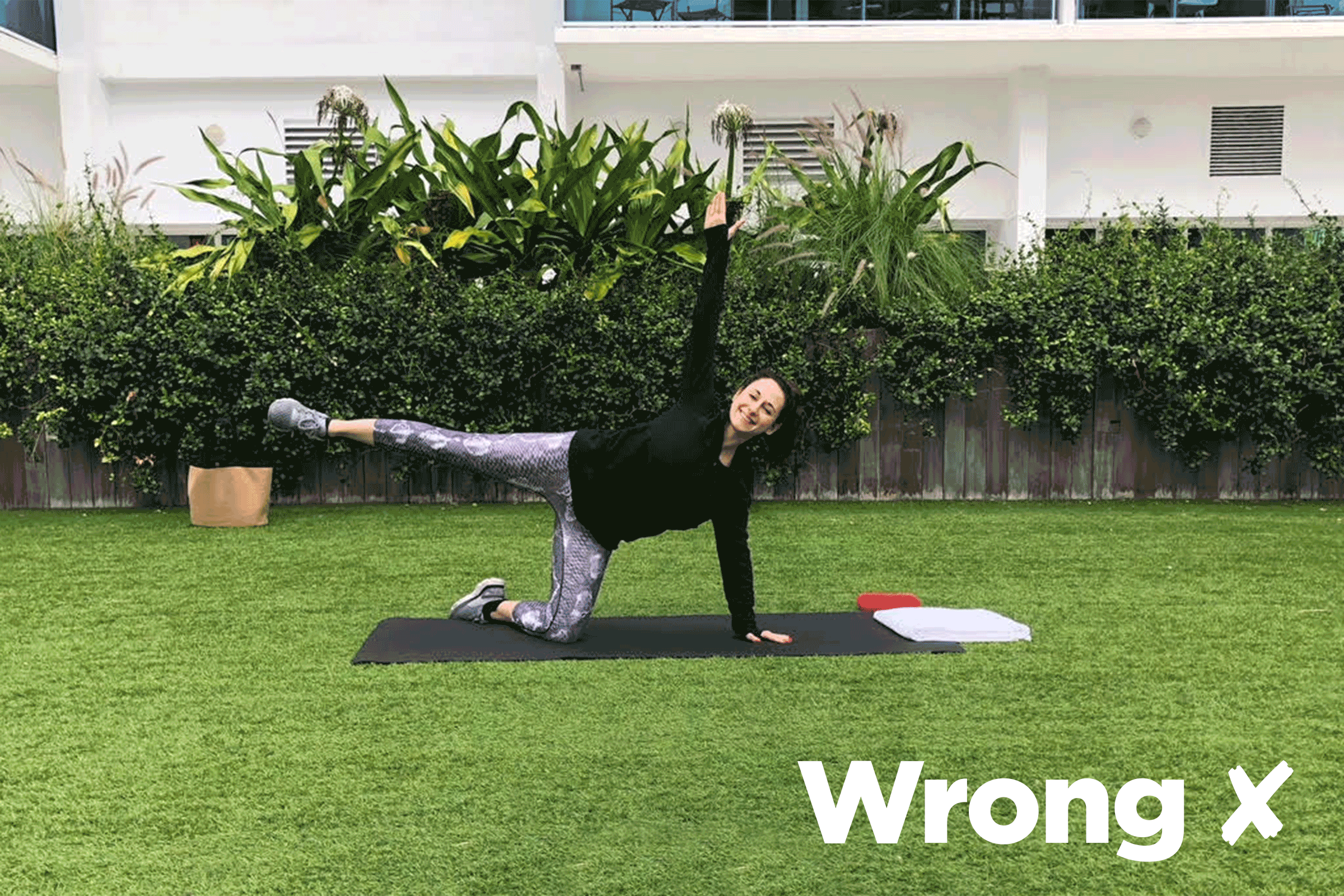
Wrong: Sitting back into the glutes and sticking your seat out. You won’t stretch the abs properly because your weight is back into the hips and glutes. Make sure to press the weight forward.
Keep in mind, stretching isn’t just for after your workout—it’s great before bed, too!
The post 5 Mistakes You’re Probably Making with Ab Stretches appeared first on Reader's Digest.
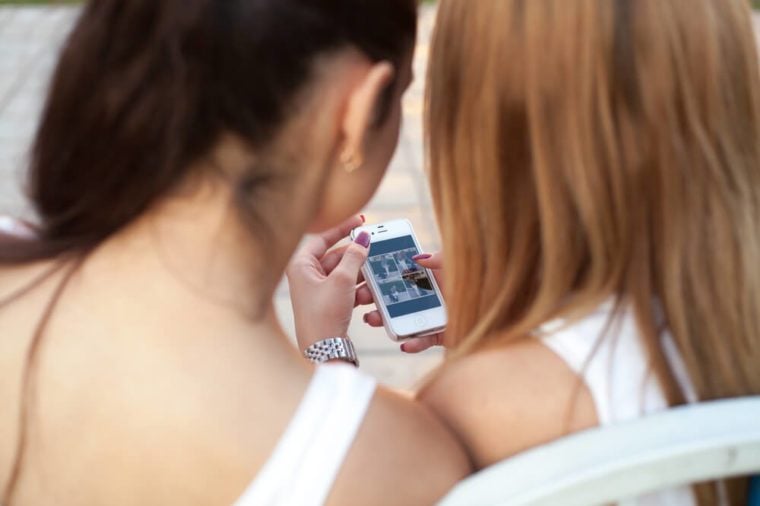 Stop living through social media
Stop living through social mediaFacebook, Instagram, Twitter, and the like can be a fun pastime, but the problem with them becomes apparent pretty quick, says Clarissa Silva, a behavioral scientist who studies the impact of social media on our lives. Everyone is showing their best selves online and we end up comparing our worst to their best. “Since we’re only getting people’s ‘highlight reels’ and comparing it to ourselves, it is natural to have painful reactions to what we’re watching. It’s become the new version of ‘Keeping up with the Joneses,'” she says. The solution? Limit your friend list to people who are really your friends, unfollow people who make you feel bad (including celebs), and make sure you’re spending more time socializing in real life than online. (Or take a break from social media all together!)
Fifty percent of people in Silva’s study reported regularly feeling FOMO, “fear of missing out,” leading them to negatively compare their lives to their friends’. Forget FOMO by getting out and doing things you love, she says. Find a hobby, take up exercising, join a club, or attend a church, and definitely turn off the notifications on your phone in the meantime. (Or try one of these strategies to ditch FOMO) When you’re happy with what you’re doing, you’re much less likely to worry about what someone else is doing.
Comparing yourself to others can be obviously detrimental, but so can comparing yourself to previous, idealized versions of yourself. How often have you looked in the mirror and compared what you see now to your taut, tanned high-school body? Or remembered how simple things were when your kids were little, compared with their current, teenage selves? Instead of obsessing about how great the past was, remember all the things you’ve learned on your journey and focus on those, Silva says. (For more, try these 50 tiny changes that will immediately make you happier.)
Popular culture has self-esteem backward: Feeling good about yourself isn’t necessary to make positive changes; rather, making positive changes will help you feel good about yourself, says Tanisha Ranger, PsyD, a licensed psychologist. “At some point, we collectively, as a society, decided that self-esteem was the most important thing for people to have and in some ways that made sense,” she says. “However, ‘self-esteem’ is basically all about comparison! Do I view myself as good as compared to others? And this is where, I think, our problems are born.” The solution: Focus more on doing good than being perceived as good—like one of these 30 little things guaranteed to instantly boost your self-confidence.
Being mindful—that is, taking time to really be aware of your body, your internal self, and your environment—provides a ton of great benefits. And you can add “fewer temptations to compare” to that list, Dr. Ranger says. “Often times, comparison can be used as an escape from current life discomfort by focusing elsewhere, but escaping the present moment guarantees that you will have regrets,” she explains. “Being able to be present with our thoughts, feelings, and circumstances without judging or comparing is an important life skill.” Bottom line? Be here now and you won’t be so tempted to wish you were someone or somewhere else. If you think you don’t have time, use these 11 easy ways to fit mindfulness into your life.
Content continues below ad
The basis of comparison is finding what you have that is better or worse—i.e. different—than someone else. But true happiness comes from finding what you have in common with others and connecting with them, Dr. Ranger says. “We all experience struggles, pain, and hurt and recognizing and acknowledging that in others will help you feel connected to others rather than feeling ‘less’ or ‘better’ (and therefore separate) from them, she adds. Hint: This is one of the ten strategies for making friends as an adult.
We are often our own harshest critics and that can be magnified by comparisons. Combat this instinct by practicing self-kindness, Dr. Ranger says. “This is the act of relating to yourself in an understanding and caring way, in the same way you would treat your closest friend or a child if they were struggling,” she says. “If you are not harshly judging yourself, then you will be open to positive comparisons, the kind that can inspire hope and spur positive changes in your life.” And that’s not the only benefit you can expect: Here are 12 powerful health benefits of being kind to yourself.
Comparing yourself to people whom you feel are better is problematic but so is comparing yourself to those you see as worse, says Pei-Han Cheng, PhD, a licensed psychologist and career coach. The issue is when you judge others you’re implicitly judging yourself as well and assuming that others judge you as harshly as you judge them. “According to research, while comparing yourself to people who are superior and successful can sometimes inspire and motivate you, it often leads to feeling inadequate and deflated,” she explains. “And comparing yourself to people you see as inferior can make you feel bad by showing you how things can be worse.” Nobody wins when you compare. Are you a Judgey-McJudgerson? Use these 11 ways to stop judging others.
The absolute fastest way to banish bad feelings from comparisons is to focus on all the great things you have, and are, right now. Sure, some other people may have it better or worse than you but you aren’t them. Make a list and actually write down things you are grateful for, including material blessings, characteristics about yourself, loved ones, experiences, and thoughts. Make it a daily practice and you’ll find your urge to compare is almost entirely extinguished. Need a little inspiration to get you started? Check out these 16 powerful quotes on gratitude.
Comparing yourself doesn’t have to be 100 percent negative. In fact, it can inspire you to make good changes. The key, Dr. Cheng says, is to look at the comparison and “understand what is the underlying feelings or accomplishments that might be missing in your present life, and what you can do to bring back those things.” For instance, people who think everyone else is smarter than they are may be feeling inadequate due to challenges at work—challenges that can be worked on or fixed. On the other hand, if you’re comparing something that you have no control over—your hairline, say—it’s best to recognize that and move on. “Remember all you can control is you, in this present moment of your life, and develop strategies for tackling those challenges and restoring your self-esteem,” she adds.
It’s natural to want to know all the juicy details about others’ lives, including celebrities. But while reading up on the latest scandal may give you a quick boost, in the end, this will come back to hurt you—particularly as celebrity ‘lives’ are the most manufactured, Photo-shopped, edited, and manipulated on the planet. “Celebrities are often a source of comparison due to the perception that they lead luxurious lives,” explains Christopher Grant, PhD, an adjunct assistant professor of psychology at Franklin & Marshall College. “In many cases, their lives are on full displays. They have beautiful friends, wonderful talents, creative personalities, and the most desirable lovers.” But what you don’t see is everything that goes on behind the scenes; chances are if you really knew their life, you wouldn’t want it, he adds.
The post 11 Ways to Stop Comparing Yourself to Others—and Live Your Best Life appeared first on Reader's Digest.
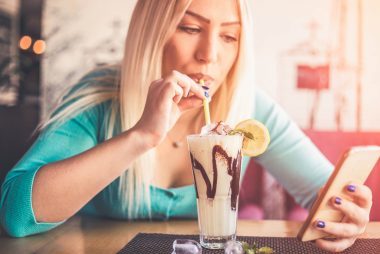
The post 10 Rude Manners That Are Actually Polite in Other Countries appeared first on Reader's Digest.

“There are certain illnesses that have an abrupt onset, where one minute you’re well, and then suddenly, you’re not,” says Steven Lamm, MD, clinical professor of medicine and medical director of the Tisch Center for Men’s Health at NYU Langone Medical Center. That’s very typical of influenza. Flu symptoms include the rapid onset of chills and fatigue, says Dr. Lamm. When you’re coming down with a virus like a cold, you’re more likely to feel mild fatigue or a scratchy throat; symptoms come on more slowly than for flu. Abrupt shaking, chills, and fever are usually signs of influenza or a bacterial infection that needs to be examined soon, suggests Dr. Lamm. Here are some more clear signs a cold is coming—and what to do about it.
The post 6 Clear Signs You’re Getting Sick appeared first on Reader's Digest.

Acne scar treatment: “Treatment may include excising the scar with a small ‘punch,’ and suturing the defect closed, but this only works for isolated ice pick scars,” he says. New York City dermatologist Judy Hellman, MD, adds: “We can also do skin grafts and take skin from behind the ear to fill the scar, and then we can use a laser or radiofrequency device to smooth it out.”
If there are multiple ice pick scars, acne scar treatment devices that use radiofrequency energy are Dr. Hellman’s first choice. “These treatments help build collagen from the inside out, and collagen helps to fill the scars from within,” she says. Several treatments are usually needed. The procedures are done using local anesthesia, and it’s effective in all skin types, she says. In one study, published in a 2015 issue of the Journal of Cosmetics, Dermatological Sciences and Applications, Dr. Hellman found that approximately four treatments with a radiofrequency device produced significant improvement in the depth of the scars. A follow-up study in a 2016 issue of the same journal showed that these results held for up to two years, although some people had touch-ups.
The post The Best Acne Scar Treatment for Even the Toughest Scars appeared first on Reader's Digest.
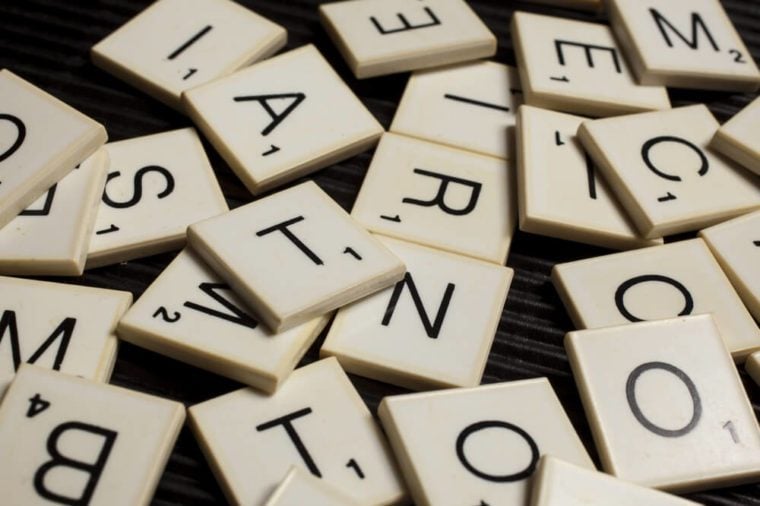
Consider these five words: island, grudge, pneumonia, wrestle, beyond. At first glance, you probably don’t think they have anything in common. (Besides the fact that some of them contain the most common letter in the English language.) But you might need to harken back to your grade-school grammar lessons to see the connection.
If you’re still stumped, say each word slowly. Did you notice a missing syllable or two? Turns out, all five words have one or more silent letters—and that’s just a small sample of them.
It’s no secret that the English language has heaps of crazy grammar rules, and the way we pronounce words is no exception. While there are 26 letters in the alphabet, they share at least 44 different pronunciations between them. The letter A, for example, has seven different English pronunciations alone. (At least you can safely ignore these common grammar rules.)
On top of that, almost every letter in the alphabet has a silent usage, too. Think about it: From the C in scissors to the U in build, the English language has a bad habit of omitting letters in certain words. Even unusual letters like Z and J are silent in words that we have adopted from foreign languages, such as marijuana (originally a Spanish word) and laissez-faire (French).
But as Merriam-Webster Dictionary points out, one unusual letter is never silent: the letter V. While it makes an appearance in words like quiver and vivid, you can rest assured it always behaves the exact same way.
That might change soon, though. Last year, President Donald Trump tweeted the word “covfefe,” which sparked heated debate regarding how, exactly, one should say this made-up term. Some suggested that it is pronounced with a silent V.
Want to weigh in? We won’t stop you. If grammar really grinds your gears, we have even more word nerd trivia for you: With 645 meanings, the most complicated word in English is only three letters long.
The post This Is the Only Letter in the English Language That Is Never Silent appeared first on Reader's Digest.

Viking Ocean Cruises is just a few years old, but their adults-only ships have a quiet, sophisticated atmosphere. Picture afternoon tea in the stunning Wintergarden, dinners in Manfredi’s, the gorgeous Italian restaurant onboard, and cocktails in a cozy lounge by a fireplace. Cabins are spacious and comfortable, with heated bathroom floors and verandas as well as complimentary 24-hour room service and WiFi. All of the line’s just-under-1,000-passenger ships are identical, and this one—the newest until Viking Orion launches later this year—sails around the world so you can, say, learn to tango in Buenos Aires or track down those avocado lattes in Melbourne.
Swoon-worthy detail: Use of the spa facilities are complimentary and, best of all, the steam room, snow room, and whirlpools are co-ed.
Psst… find out the 28 secrets cruise lines won’t tell you.
The post 10 Most Romantic Cruises for Valentine’s Day appeared first on Reader's Digest.

The research, published in the journal Human Factors, examined how a phenomenon known as “inattentional blindness”—the failure of the brain to register an unexpected object in plain sight—might explain why so many motorcycle crashes involve drivers who claim they never saw the rider. The study authors, led by Kristen Pammer, PhD, a psychology professor at the Australian National University in Canberra, suspected this “looked-but-failed-to-see” type of crash can’t be explained by motorcycle size and visibility. “When we are driving, there is a huge amount of sensory information that our brain must deal with… The frequency of [these type of] crashes suggests to us a connection with how the brain filters out information,” Dr. Pammer said in a press release.
To test this theory, Dr. Pammer and her colleagues asked 56 volunteers to look at photos that had been taken from a driver’s perspective, including one that had been manipulated to include an unexpected object: either a motorcycle or a taxi. The volunteers were then asked to assess whether the photo showed a “safe” or “unsafe” driving situation. Dr. Pammer found that people were twice as likely to miss a motorcycle compared with a taxi. Follow-up experiments found similar results.
Dr. Pammer would like to use the study as a basis for encouraging and even training drivers to become more consciously aware of motorcycles on the road. “By putting motorcyclists higher on the brain ‘radar’ of the driver, hopefully drivers will be more likely to see them,” she notes. In the meantime, make sure you memorize these tips for safely handling scary and unexpected driving scenarios.
The post Riding Motorcycles Is More Dangerous Than You Thought—Here’s Why appeared first on Reader's Digest.

My husband, Randy, and I live on the edge of Valdez. Our street was part of a homestead long before a bridge crossed Mineral Creek to get to the area. The owners barged their supplies to the beach and then hauled them home. When they sold the homestead, they gave the majority of the property to the state to be protected and preserved.
We look upon mountains from every window, waterfalls coming off the mountain across the street from the front and east end of our house, and bay views out the back when foliage and snow allow. We can see an eagle’s nest when the leaves are gone. We admire lovely, untouched nature that changes with the seasons to the point that it seems we live in two different places without having to move.
(Check out these 40 stunning photos of national parks covered in snow.)

I have been employed with the local electric co-op since 2001, and Randy has worked for Alaska Department of Transportation as a parts manager for the equipment fleet since 2006. Randy helps to maintain the snowplows and the graders that keep Thompson Pass open and drivable year round.
We get moisture from the coast, and the mountains keep extreme interior cold out, so we stay in the perfect snow zone—teens and 20s for the most part. This makes for some great shots of our dog, Ruffy, playing in the weather that he loves so much. Ruffy likes to roll in the snow, help Randy dig the snow out, and play Frisbee or ball.
We have the best snow removal in the world, so weather doesn’t stop anybody from getting to work or school. Valdez was relocated after a 1964 earthquake, and the Army Corp of Engineers laid out the new town, including drainage and snow storage requirements.

Getting out of (or back into) our one-story house after the roof has shed a big accumulation requires some work. Randy likes to call it his “snowercise.” But after a heavy storm, the sun comes out, and it is so stunning, quiet, and peaceful.
In early winter, we have about five hours of daylight, and the sun doesn’t completely rise above the mountain peaks across the bay, causing a peek-a-boo effect. But by the end of January, the sun has risen high enough to clear the mountains again.
In late winter, avalanches start coming off the mountains. They are really something to watch.
(These charming towns are even cozier when it snows.)

Life in Valdez is not for everyone. With its extreme climate, people either love it or hate it. But even those who don’t like snow admit this is one of the most beautiful settings they have ever seen. I still am in awe after almost 18 years.
The post This Beautiful Alaskan Town Is 250 Miles Away from the Nearest Stoplight appeared first on Reader's Digest.